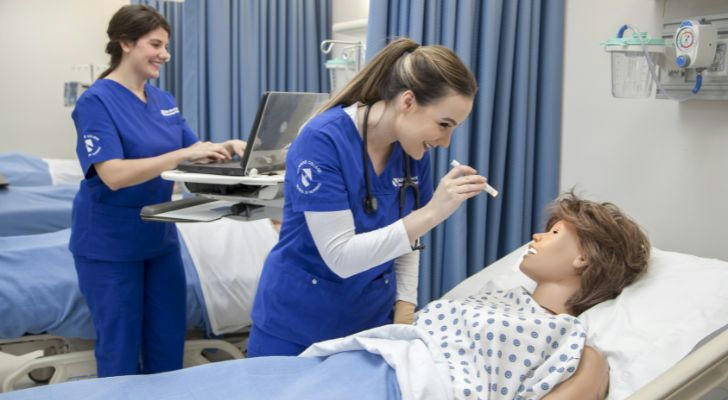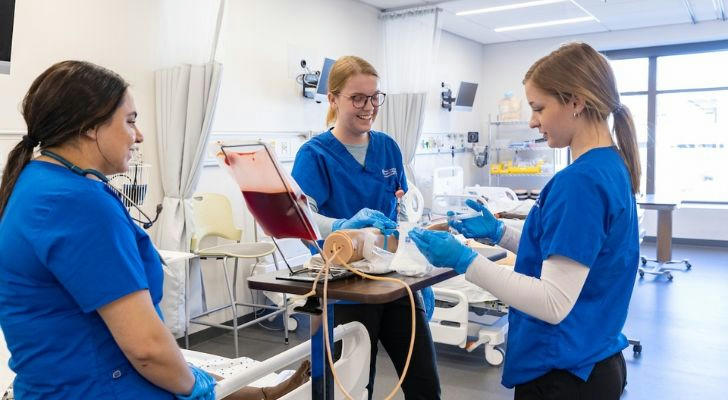Licensed Practical Nurse (LPN): A Career Choice to Transform Your Life and Unlock a Stable, Meaningful Future
With the rapid expansion of the U.S. healthcare industry, especially under the aging population trend, the demand for nursing professionals is steadily increasing. For those seeking to improve their quality of life or pursue a career transition, the Licensed Practical Nurse (LPN) profession has become an ideal choice.

According to the U.S. Bureau of Labor Statistics (BLS), the demand for LPNs is projected to grow by 6% from 2021 to 2031, outpacing the growth rate of most other industries. This trend provides a stable and promising career path for those looking to enter the healthcare field.
The Appeal of the LPN Profession
1. Improve Income Status
For low-income individuals, the LPN profession offers a pathway to higher income. The average annual salary for LPNs is approximately $51,850, significantly higher than many entry-level jobs. Additionally, certain healthcare and long-term care institutions offer even higher salaries. According to the American Journal of Nursing published in 2022, LPNs working in nursing homes and home care agencies often earn more than those in hospitals, with some regions offering annual salaries exceeding $60,000.
Flexible scheduling options (such as night shifts and part-time work) make the LPN profession particularly suitable for those needing to balance family responsibilities. For instance, some healthcare facilities offer rotating shift options, allowing employees to arrange their work schedules according to their personal needs.
2. Fast Track for Career Transition
Many career changers can quickly enter the healthcare field through LPN programs. LPN training programs typically take 12 to 18 months to complete, much shorter than other medical-related degree programs. For individuals transitioning from retail, hospitality, and other industries, LPN is a practical career choice.
For example, the 2021 Healthcare Career Transition Report indicated that approximately 30% of LPN students came from the service industry, with over 90% of graduates successfully securing jobs and experiencing an average income increase of more than 40%.
3. Career Advancement Opportunities
Individuals already working as nursing assistants can expand their scope of practice and increase their income by obtaining an LPN license. Additionally, LPN can serve as a bridge to becoming a Registered Nurse (RN), further advancing career growth. According to the American Nurses Association (ANA), over 25% of LPN graduates pursue RN qualifications within three years.
Why Choose an LPN Training Program?

1. Flexible Learning Options
LPN programs typically offer full-time, part-time, and online courses to accommodate students balancing work and family. Many schools provide hybrid learning models, where theoretical courses can be completed online, and practical training is conducted in healthcare facilities.
For example, Helsin University offers a 100% online LPN program, allowing students to complete theoretical studies at home while arranging internships at local healthcare institutions.
2. Financial Assistance Opportunities
Government programs such as the Workforce Innovation and Opportunity Act (WIOA) and employer-sponsored programs help financially disadvantaged applicants cover tuition fees. Some employers also offer tuition reimbursement policies to ensure graduates secure employment.
According to the 2022 U.S. Workforce Training Report, over 70% of WIOA-funded recipients successfully completed LPN programs and found jobs within six months of graduation.
3. High Employment Rate
Graduates typically secure jobs quickly after completing the LPN program and passing the NCLEX-PN exam. According to the National Council of State Boards of Nursing (NCSBN), over 85% of LPN graduates pass the licensure exam.
Furthermore, companies such as Genesis Healthcare and ProMedica offer direct employment opportunities for graduates, further ensuring high employment rates.
Steps to Apply for an LPN Program
- Select the Right Training Program: Choose a training institution that fits your budget, schedule, and location. Prioritize programs accredited by the National Council of State Boards of Nursing (NCSBN) to ensure course quality.
- Submit Application Materials: Typically includes proof of age, education credentials, and health check documents. Some institutions may require recommendation letters and personal statements.
- Take Entrance Assessments or Interviews: Some institutions require academic exams or interviews, which may involve discussing career motivation and personal background.
- Apply for Financial Aid: Use government or institutional scholarships to reduce financial burdens and inquire if the school offers installment payment plans.
- Start Learning: Complete the program and take the NCLEX-PN exam.

Impact of LPN on Life
1. Work-Life Balance
LPNs benefit from various shift options, helping individuals balance work and family responsibilities. Certain healthcare institutions even offer remote care positions, allowing nurses to provide consultation via phone or video.
2. Helping Others and Gaining Fulfillment
In the healthcare industry, LPNs provide direct care to patients, offering help to those in need and fostering a sense of professional fulfillment. For example, LPNs in long-term care facilities often become the primary caregivers for elderly patients, earning trust from both patients and their families.
Conclusion
Becoming a Licensed Practical Nurse (LPN) is not only an opportunity to improve financial status but also a gateway to the healthcare industry. Whether seeking career transition or hoping to help others, the LPN profession can provide a stable and meaningful career path.
If you are interested in the LPN program and would like to learn more details or apply for financial aid programs, please visit CareerOneStop or contact your local workforce development agency to take the first step toward a brighter future. Licensed Practical Nurse (LPN)
